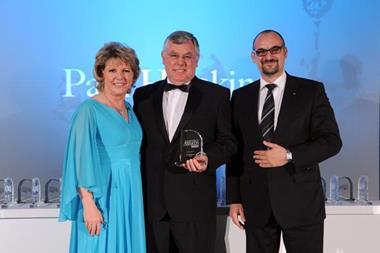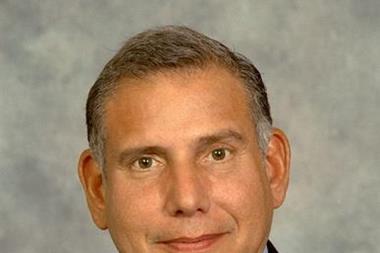Gordon Brown failed to reassure the public over swine flu, a survey said
Gordon Brown ranked bottom in a survey of the best risk communicators in relation to swine flu health concerns.
The British prime minister scored the worst when University of Wolverhampton researchers showed members of the public 15 media interviews about swine flu and asked them to rate the effectiveness of each spokesperson.
Sir Liam Donaldson, the government’s chief medical officer, scored better but still only reached fifth in the ranking.
Jonathan Hemus, director of Insignia Communications, a risk communication consultancy which partnered in the research, said: “Gordon Brown suffered from poor body language, a lack of practical advice and a formal setting which, rather alarmingly, sent a subliminal message of a crisis situation. His ability to deliver messages with credibility is also undoubtedly negatively affected by his general unpopularity at this time.”
Conversely, said Hemus: “The most effective spokesperson – Professor John Oxford – combined a senior academic background and a formal appearance, both of which provide credibility, with a personable style and clear actionable advice. It was this mixture of ingredients which made him the most successful communicator.”
The researchers also identified that unsuccessful risk communication could have a serious adverse affect on public confidence. Poor communicators, who give worrying insights without clear and actionable advice can cause significant anxiety, claimed the report.
Hemus, concluded: “This research makes it clear that high profile spokespeople have enormous power to reassure and inform the public in the event of a health scare. Equally, they have the ability to cause unnecessary confusion, distress and concern if they fail to communicate effectively. They need to recognise that this position of power also brings with it responsibility”.
The complete ranking of the fifteen spokespeople covered by the research:
1) Professor John Oxford, professor of virology, University of London
2) Andy Burnham, Secretary of State for Health
3) Professor Sir Roy Anderson, Imperial College, London
4) Dr Tom Jefferson, The Cochrane Collaboration
5) Sir Liam Donaldson, Chief Medical Officer
6) Dr Boon Lim, Royal College of Obstetricians and Gynaecologists
7) Dr Carl Heneghan, Department of Primary Health Care, Oxford University
8) Sandra Mounier-Jack, Department of Public Health and Policy, London School of Hygiene and Tropical Medicine
9) Belinda Phipps, chief executive, National Childbirth Trust
10) Professor Hugh Pennington, Professor of Bacteriology, University of Aberdeen
11) Dr Richard Halverson, GP and author of The Truth About Vaccines
12) Dr Steve Field, chair of Royal College of GPs
13) Gregory Hartl, communications advisor, World Health Organisation
14) Dr Marie-Paule Kieny, Director, Initiative for Vaccine Research, World Health Organisation
15) Gordon Brown, Prime Minister



















No comments yet